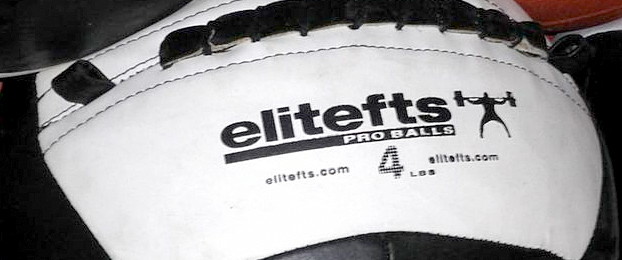
Over the summer, my Quest 10 kid camps at Fitness Quest 10 were a huge success. This was my third year running the summer camps and it was by far the most successful. In reviewing our success, I attempted to pinpoint why this year was our best to date. Many factors came into play—improved marketing strategies, good coaching, and an improved exercise environment. All these factors contributed, but the one that stood out to me the most was the selection of games we used.
We all know that young kids love to play games. Even adults (which I'll discuss at a later time) love to play games to get a laugh or two. In past years, we played games in our camps, but this year, I put a little more thought into the implementation and selection of games. It was important for me to understand the value that games can have in the overall development of all kids. Therefore, I'll share with you how games aided in this quest.
1. Create fun:
Let's face it—if you're working with young kids, especially a group, you have to make the session fun. Without an element of fun, you'll lose the kids' interest and the overall energy of the exercise session will be subdued.
2. Stimulate the nervous system:
Our summer camps began at 8:30 a.m. Frankly, the kids shouldn't have any issue with this time because school usually starts earlier. However, kids associate summer with sleeping in. Some kids stay up later during the summer, so they come to camp lethargic and disinterested. What better way to wake them up and stimulate their nervous systems than a quick game of 'Simon Says' or mirror drill? They become engaged in the session and don't think about how early in the day it is.
3. Use clusters for skill acquisition:
If you have or if you're planning on working with young kids, you must realize that their attention span only allows them to soak in so much at a time. They need to be taught skills, but this should be done in clusters so that skill acquisition is most effective. Often times, I taught them a skill such as learning how to stop. After spending some time on that, I had the interns take them through a quick game before we transitioned into the next phase of the workout.
4. Teach skills:
Depending on the type of game you choose, skills can be worked on within the framework of the game. For example, we played a game where the kids had to catch a tennis ball with a cone while shuffling. Although this game is fun, the kids are also developing hand-eye coordination and improving their lateral movement. You don’t have to tell the kids that they're working on these things though. Their focus should be on the rules of the game and having fun.
5. Develop teamwork:
One of the most important concepts I want all my kids to understand is the importance of teamwork. Therefore, many of the games we played required each kid to perform a specific role in order for the team to win. It forced the kids to encourage and communicate with one another. It’s a great lesson for the kids because it conveys that if you're on a team, you have a role. No matter how big or small that role is, your performance in your role will impact the team’s success.
6. Get them moving:
This is a simple one, yet it's a big concept. In America today, kids don't move enough. So a game like capture the flag, sharks and minnows, or dodge ball requires kids not only to move but to move at a relatively fast rate. Movement alone can get them to become efficient at certain tasks, so I can't emphasize this enough.
7. Create a culture:
When I met with my interns before our camps started, I stressed to them how I wanted to create a culture. I wanted our kids to go home after each session and tell their family and friends how much fun they had at Fitness Quest. Our game selections aided in our goal. Our kids were always excited for Fridays because we designated this day game day. We all went to the park and essentially played games for the entire hour. Even in the beginning of the week, kids requested specific games that they wanted to play. The excitement of the kids became contagious among not only the interns but the entire Fitness Quest 10 staff.
At the end of the day, kids are just...well, kids, and coaches need to treat them like that. They aren't robots, and we aren't trying to turn them into world class athletes. Yes, you do want skill development to occur, but they need to have fun. That’s what being a kid is all about. Games can aid in this. Most kids don’t even play outside anymore, so let’s remind them what being a kid is truly all about.









